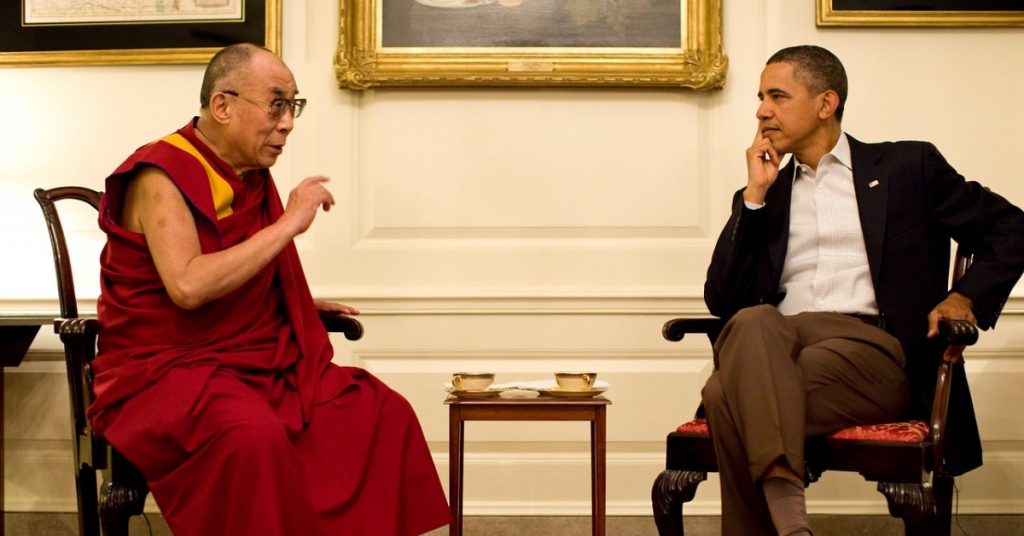Virendra Pandit
New Delhi: Barely three weeks before he lays down the office at the White House, the outgoing US President Donald Trump signed on Sunday into law a bill that calls for establishing a US consulate in Tibet and building a worldwide coalition to ensure that the next Dalai Lama is appointed solely by the Tibetan Buddhist community, without Beijing’s interference.
The Tibetan Policy and Support Act of 2020 modifies and re-authorizes various programs and provisions related to Tibet, something his successor Joe Biden would also follow up as he has promised to continue Trump’s policies.
The US President signed the act as part of the massive USD 2.3 trillion packages for the year-end bill to provide long-delayed coronavirus relief and fund the federal government. The US Senate had last week unanimously passed the bill despite China’s protest.
The new law authorizes assistance to non-governmental organizations (NGOs) in support of Tibetan communities in Tibet, places restrictions on new Chinese consulates in the US until an American consulate is established in the Tibetan capital of Lhasa, media reported.
The act authorizes the US Special Coordinator for Tibetan Issues and expands his office’s duties to include additional tasks, such as pursuing international coalitions to ensure that the next Dalai Lama is appointed solely by the Tibetan Buddhist faith community. It also directs the Secretary of State not to open a new Chinese consulate in the US unless China allows the opening of an American consulate in Lhasa.
The US will take all appropriate measures to hold accountable senior officials of the Chinese government or the Communist Party of China (CPC) who directly interfere with the identification and installation of the future 15th Dalai Lama of Tibetan Buddhism, the successor to the present 14th Dalai Lama.
China views him as an alleged “separatist” working to split Tibet from the country. The US law aimed to pre-empt China from choosing a Dalai Lama of its own.
Some measures approved by the US Congress include imposing sanctions on Chinese officials, including travel restrictions. The new law says that the Dalai Lama has overseen a process of democratization within the Tibetan polity and devolved his political responsibilities to the elected 23 representatives of the Tibetan people in exile in 2011.
Expressing concern over the exploitation of natural resources of Tibet, in particular water, the new law will pursue collaborative efforts with Chinese and international scientific institutions, monitor the environment on the Tibetan Plateau, including glacial retreat, temperature rise, and carbon levels, to promote a greater understanding of the effects on permafrost, the river flows, grasslands and desertification and the monsoon cycle.
The Taiwan Assurance Act of 2020 and the Tibetan Policy and Support Act of 2020 both contain language objectionable to China, including USsupportforTaiwan’s meaningful participation in United Nations bodies and regular arms sales.
On Tibet, which China has ruled with an iron fist since 1950, the act says sanctions should be put on Chinese officials who interfere in the selection of the exiled spiritual leader the Dalai Lama’s successor.
Predictably, China reacted strongly. It’s Foreign Ministry spokesman Zhao Lijian said that Beijing was “resolutely opposed” to both acts.
“The determination of the Chinese government to safeguard its national sovereignty, security, and development interests is unwavering,” he told reporters. He also termed the US move as an “interference” in China’s internal affairs.
But the Taiwanese government welcomed it. “The United States is an important ally of Taiwan’s internationally, and a solid partner for sharing the values of freedom and democracy,” it added.

